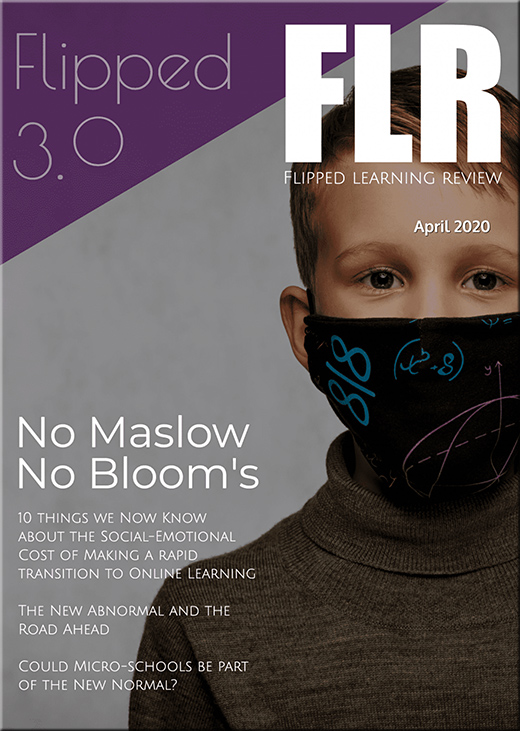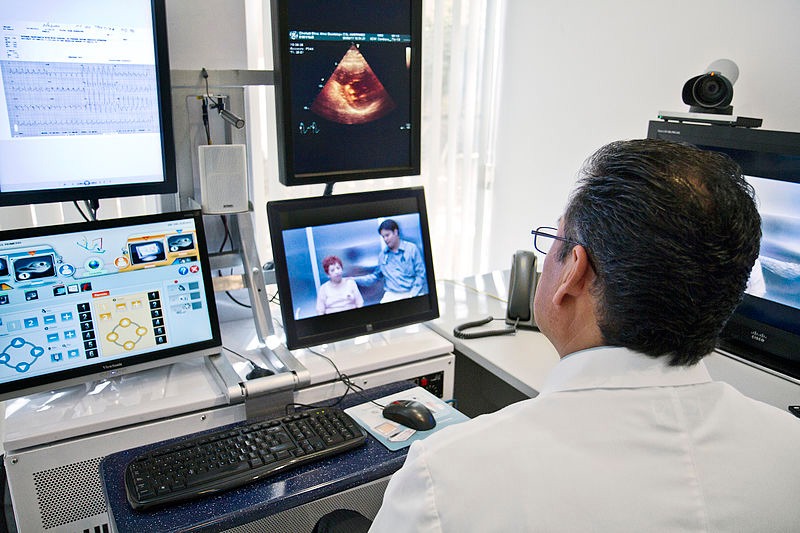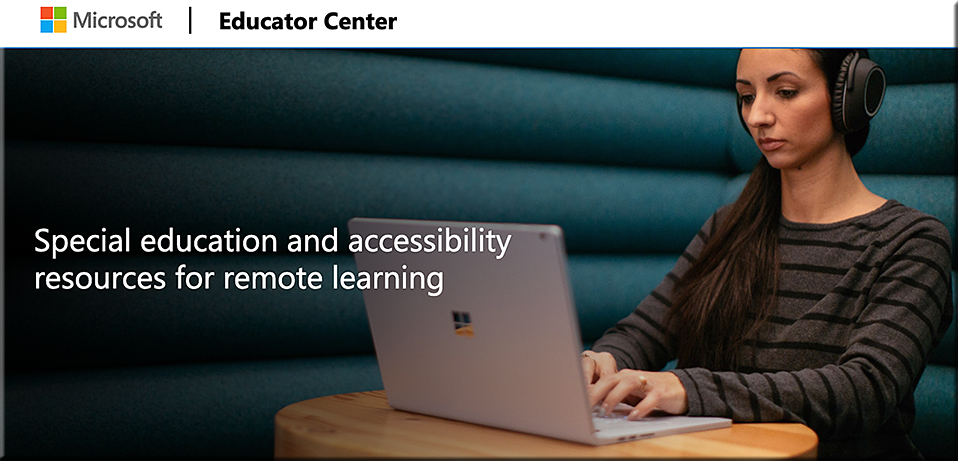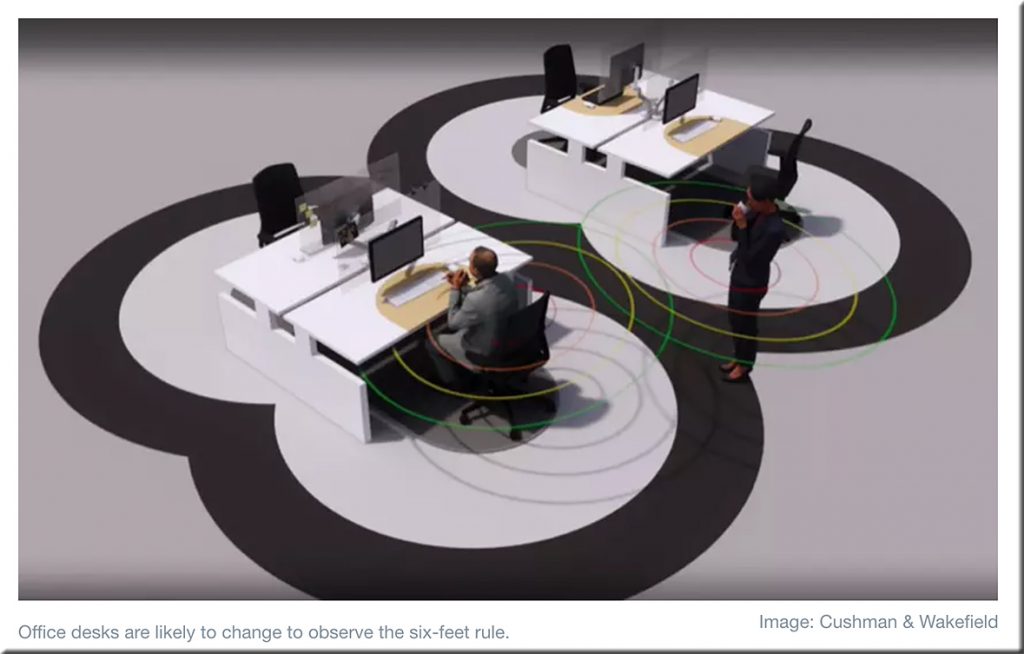Fall Scenario #13: A HyFlex Model — from insidehighered.com by Edward Maloney and Joshua Kim
Excerpt:
In a HyFlex course, courses are delivered both in person and online at the same time by the same faculty member. Students can then choose for each and every class meeting whether to show up for class in person or to join it online. The underlying design ethos behind the HyFlex Model is flexibility and student choice.
…
To do it well, then, a lot of things need to line up, including the technology, the course design, the focus on pedagogy and the engagement of the students. Many schools that wish to scale the HyFlex Model across the curriculum for the fall semester will likely need to make a significant investment in classroom technology.
Also see the other scenarios from Kim and Maloney at:
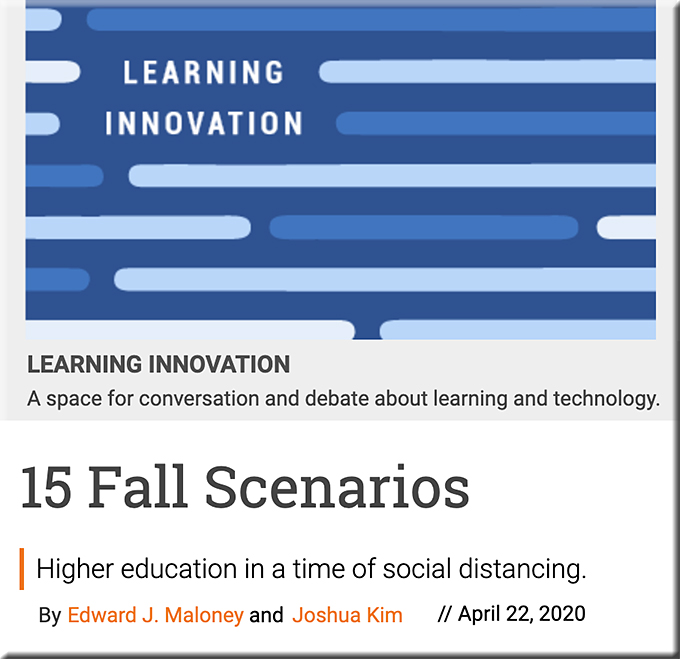
Problems planning for a Post-Pandemic Campus this fall — from bryanalexander.org by Bryan Alexander
How will campuses try to return to face-to-face education? What does it mean now to plan for a Post-Pandemic Campus this fall?
Excerpt:
In April I published three scenarios for colleges and universities may approach the fall 2020 semester in the wake of COVID-19, based on different ways the pandemic might play out. I followed that up with real world examples of each scenario, as different institutions subsequently issued announcements about their plans. To recap, they are:
- COVID Fall: today’s “remote instruction” continues and develops for the rest of calendar 2020.
- Toggle Term: campuses are ready and able to switch between online and in-person instruction as circumstances change.
- Post-Pandemic Campus: colleges and universities return in the fall to the traditional face-to-face mode after COVID-19’s danger has ebbed to a certain level.
6 ways college might look different in the fall — from npr.com by Elissa Nadworny
Excerpt:
What will happen on college campuses in the fall? It’s a big question for families, students and the schools themselves.
A lot of what happens depends on factors outside the control of individual schools: Will there be more testing? Contact tracing? Enough physical space for distancing? Will the coronavirus have a second wave? Will any given state allow campuses to reopen?
For all of these questions, it’s really too early to know the answers. But one thing is clear: Life, and learning for the nation’s 20 million students in higher education, will be different.
“I don’t think there’s any scenario under which it’s business as usual on American college campuses in the fall,” says Nicholas Christakis, a sociologist and physician at Yale University.
If law schools can’t offer in-person classes this fall, what will they do instead? — from abajournal.com by Stephanie Francis Ward










